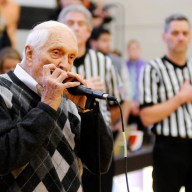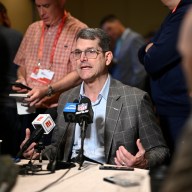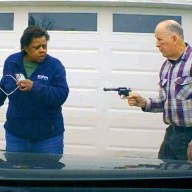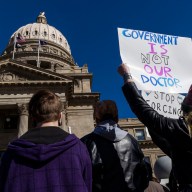They told him they couldn’t sell him the morning-after pill because of his gender.
That’s what Jersey City resident Andrew Andrade said happened to him when he tried to pick up Plan B for his girlfriend at a Rite-Aid in Jersey City Heights.
Plan B, the emergency contraceptive commonly referred to as “the morning-after pill,” originally required a prescription, but was approved in 2006 to be sold over the counter. Yet when Andrade, 25, tried to buy some for his girlfriend at the Rite-Aid in April, not one, but two store employees refused to sell it to him.
“The pharmacist refused to sell me the pill,” said Andrade, a grad student majoring in criminal justice. “I was upset and I asked to speak to the manager, and he said he would not sell it to me because I was a male. I thought that was ridiculous.”
Andrade was buying the contraceptive for his girlfriend, who had to work that day and was too busy to run to the drugstore.
According to the American Civil Liberties Union, this is not the first time a man has been denied emergency contraception. In January, the ACLU of Texas contacted CVS after a man was turned away when he tried to buy emergency contraception for his wife. The ACLU has also contacted Walgreens on several occasions, most recently in March 2012, after stores in Georgia and Alabama refused to sell emergency contraception to men.
Andrade said he went to another pharmacy down the street and asked the pharmacist there if it is indeed illegal to sell the pills to men.
“He said no. They sold it to me with no problem,” said Andrade.
The ACLU sent a letter to Rite-Aid today, asking them to apologize to Andrade and better train their employees.
“I was surprised I was denied Plan B in Jersey City because we are a liberal state,” said Andrade. “I was aware of the law, but how many other people aren’t? In a stressful situation where time is of the essence, the last thing anyone needs is to feel demoralized by having their rights violated.”
Controversy over Plan B
According to the FDA guidelines, anyone who is at least 17 years old and has valid ID can buy emergency contraceptive, regardless of gender.
2006 was the first time a hormonal contraceptive was made available over the counter, to the outcry of some in the U.S. Critics likened the pill to abortion, because the drugs work by delaying ovulation, and preventing a fertilized egg from being implanted in a woman’s uterus.
Some pharmacies and hospitals, particularly those run by religious organizations, have refused to stock the pills.
Conservatives have said making the pills widely available will only encourage promiscuous sex, while supporters argue the pill promotes safe sex and is a solution to unwanted pregnancies.
Emergency contraceptives must be taken within 72 hours of unprotected sex for them to be effective.
















